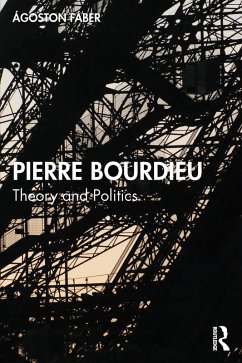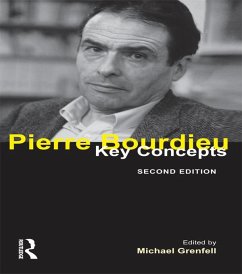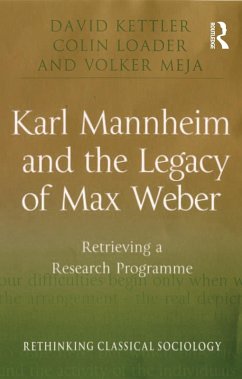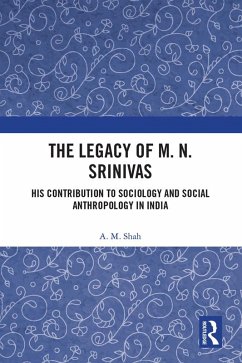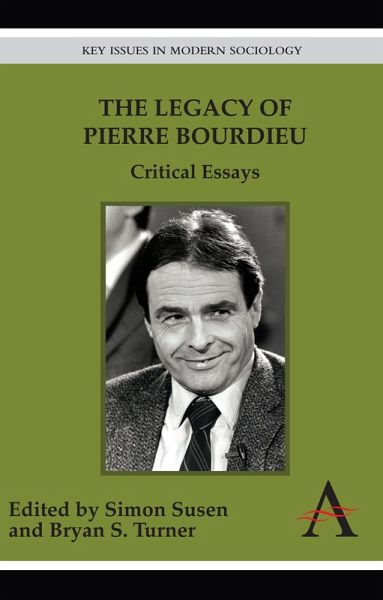
The Legacy of Pierre Bourdieu (eBook, PDF)
Critical Essays
Redaktion: Susen, Simon; Turner, Bryan S.

PAYBACK Punkte
48 °P sammeln!
Pierre Bourdieu is widely regarded as one of the most influential sociologists of his generation, and yet the reception of his work in different cultural contexts and academic disciplines has been varied and uneven. This volume maps out the legacy of Pierre Bourdieu in contemporary social and political thought from the standpoint of classical European sociology and from the broader perspective of transatlantic social science. It brings together contributions from prominent scholars in the field, providing a range of perspectives on the continuing relevance of Bourdieu's oeuvre to substantive p...
Pierre Bourdieu is widely regarded as one of the most influential sociologists of his generation, and yet the reception of his work in different cultural contexts and academic disciplines has been varied and uneven. This volume maps out the legacy of Pierre Bourdieu in contemporary social and political thought from the standpoint of classical European sociology and from the broader perspective of transatlantic social science. It brings together contributions from prominent scholars in the field, providing a range of perspectives on the continuing relevance of Bourdieu's oeuvre to substantive problems in social and political analysis.
The first set of essays traces the roots of Bourdieu's thought in classical sociology by closely examining his intellectual connections with the writings of Karl Marx, Max Weber, and Émile Durkheim. The second set of essays is concerned with Bourdieu's relation to modern social philosophy, in particular with regard to the works of Friedrich Nietzsche, Norbert Elias, Theodor W. Adorno, and Axel Honneth. The third set of essays explores the relevance of Bourdieu's writings to key issues in the contemporary social sciences, such as the continuous presence of religion, the transformative power of social movements, the emancipatory potential of language, the political legacy of 1968, the socio-historical significance of the rise of the public sphere, and the social consequences of the recent and ongoing global economic crisis. The volume also contains a major interview with Bourdieu that has not been previously translated into, let alone published in, English.
By bringing together contributions from international scholars, the volume aims to initiate a fruitful dialogue across different sociological traditions and thereby stimulate further debate on the legacy of Pierre Bourdieu in social and political thought.
The first set of essays traces the roots of Bourdieu's thought in classical sociology by closely examining his intellectual connections with the writings of Karl Marx, Max Weber, and Émile Durkheim. The second set of essays is concerned with Bourdieu's relation to modern social philosophy, in particular with regard to the works of Friedrich Nietzsche, Norbert Elias, Theodor W. Adorno, and Axel Honneth. The third set of essays explores the relevance of Bourdieu's writings to key issues in the contemporary social sciences, such as the continuous presence of religion, the transformative power of social movements, the emancipatory potential of language, the political legacy of 1968, the socio-historical significance of the rise of the public sphere, and the social consequences of the recent and ongoing global economic crisis. The volume also contains a major interview with Bourdieu that has not been previously translated into, let alone published in, English.
By bringing together contributions from international scholars, the volume aims to initiate a fruitful dialogue across different sociological traditions and thereby stimulate further debate on the legacy of Pierre Bourdieu in social and political thought.
Dieser Download kann aus rechtlichen Gründen nur mit Rechnungsadresse in A, D ausgeliefert werden.






